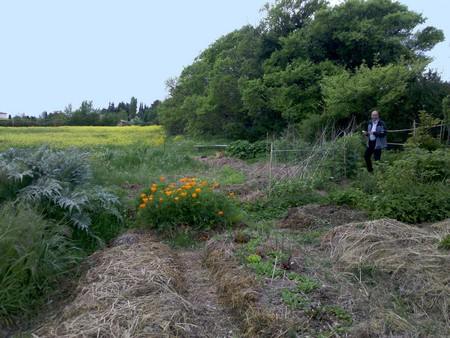
Here is another experimental garden.
The experiment consisted in evaluating the time it took for a piece of land impoverished and overexploited by intensive agriculture to become fertile again.


And a last yard of shared garden in buttes:






Not that it is false, administering speaking, but because it corresponds to a seriously truncated vision of reality.On the one hand, about 2% of people feed the other 98 ...
Ahmed wrote:
Conventional agriculture can boast only extremely low productivity (ratio between Nb of active agents and volume of production), even if the production is enormous.
This type of agriculture is content to turn oil into agricultural products with much lower efficiency than traditional agriculture did before it.
Indeed, it has outsourced most of its players, which means that the only ones present on the plots do not reflect the reality: agents working more or less for agricultural activity are legion. No study (would it even be possible?) Has ever been undertaken to better understand the real agricultural productivity ...

Ahmed wrote:The intensive is not necessarily wrong, especially when it comes to survival!
Did67 wrote:- an intensification of work [since I produce so much we do not care much]
an intensification of work (since I produce as much as we do not care much)
Ahmed wrote:
Did67your sentence is curious:an intensification of work (since I produce as much as we do not care much)
Personally, I would call it a de-intensification ...?
In relation to work, there is a good increase in productivity by decreasing the share of activity ...
Grelinette wrote:
It is more of a philosophical debate, but the value and richness of any kind of production is largely related to the effort that has had to be made in order to obtain it: the substantive marrow of all production is the effort and sweat that had to be devoted to creating it ... even if there are limits!
Back to "Agriculture: problems and pollution, new techniques and solutions"
Users browsing this forum : No registered users and 311 guests